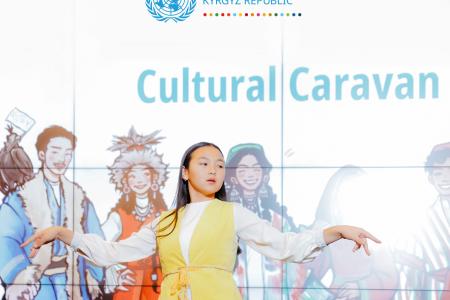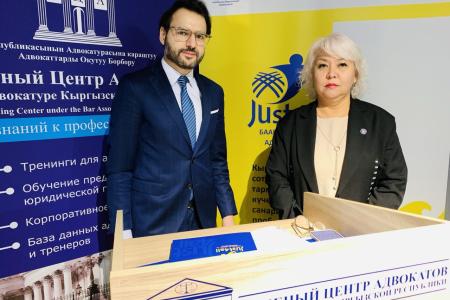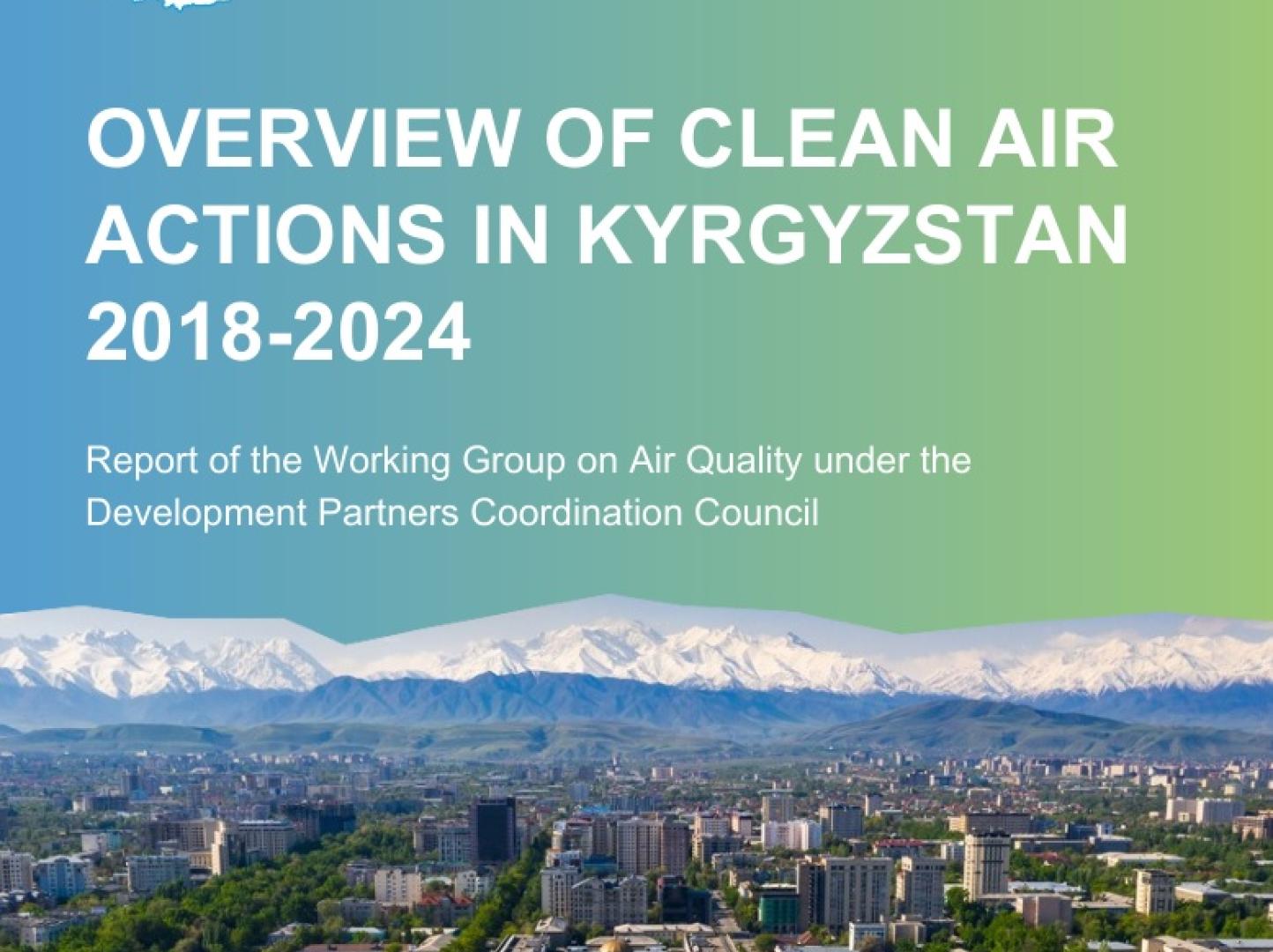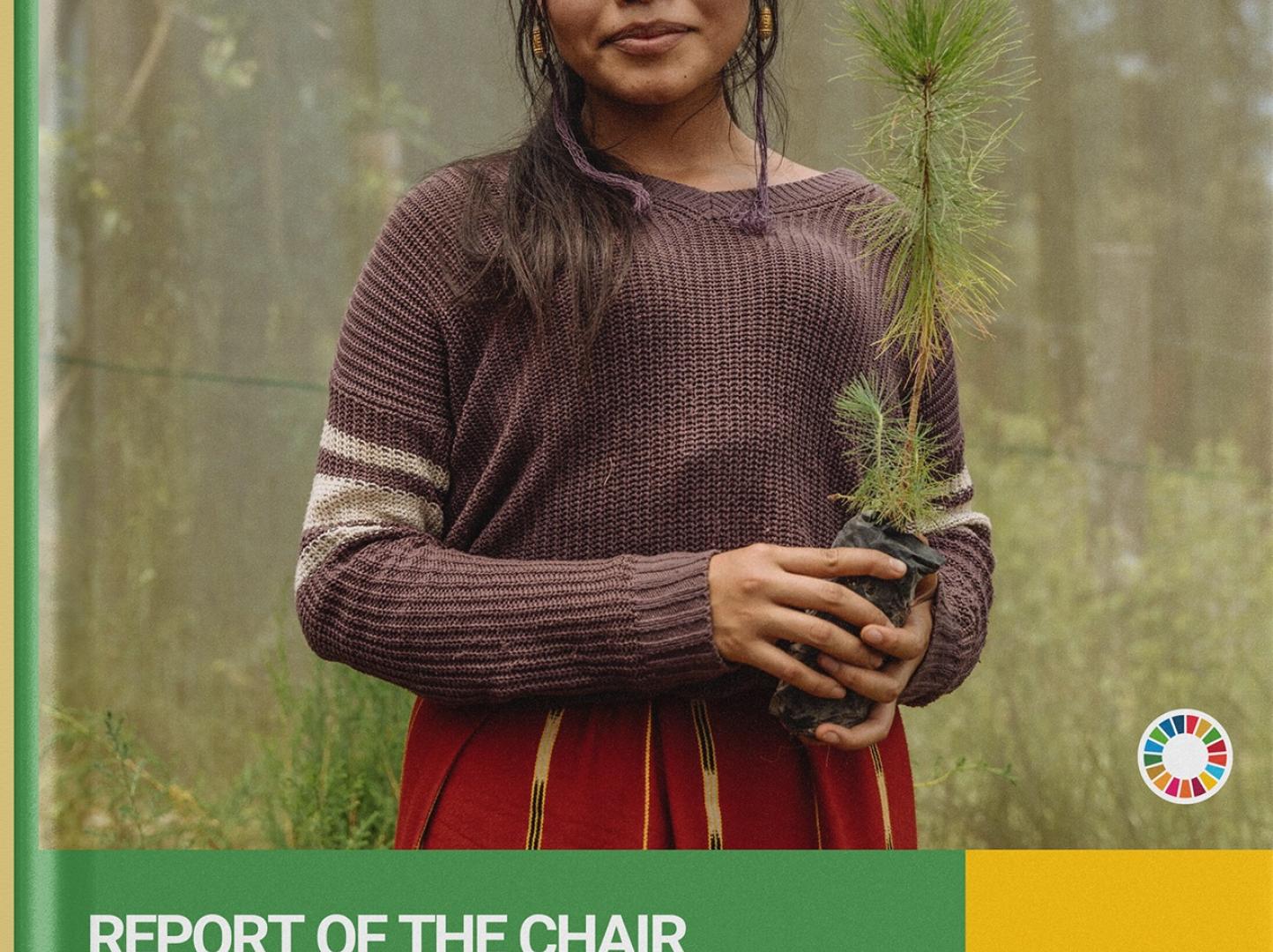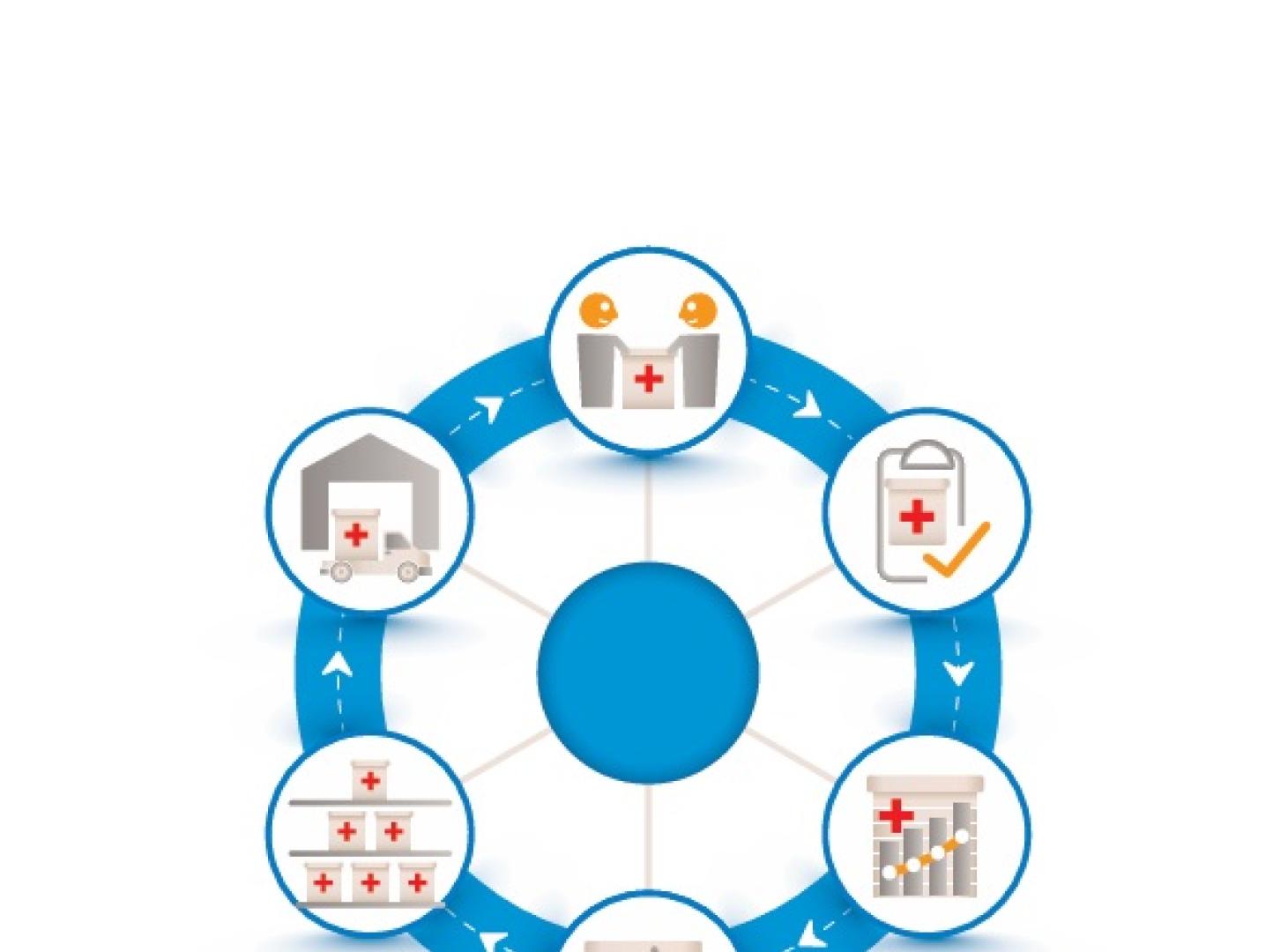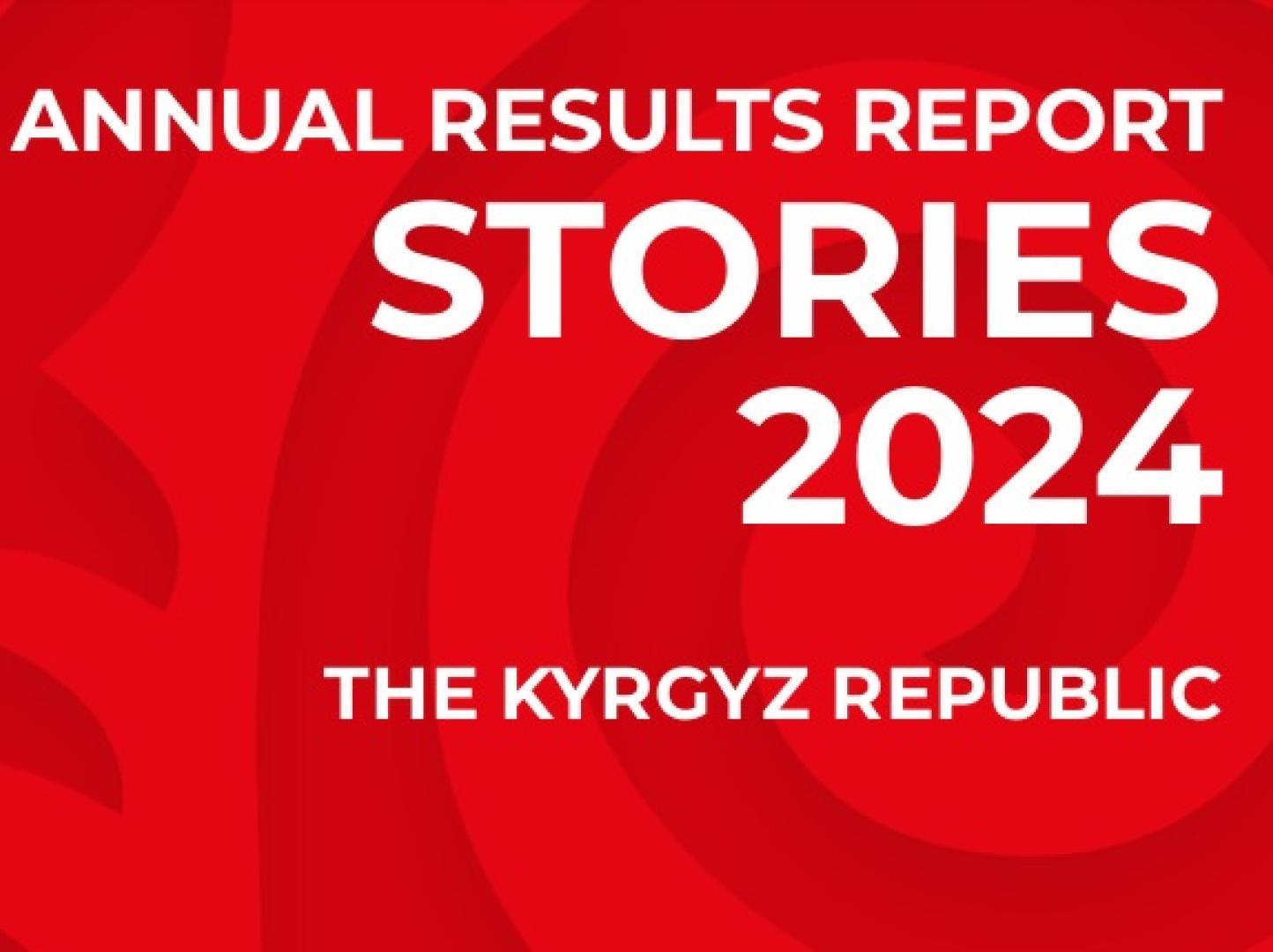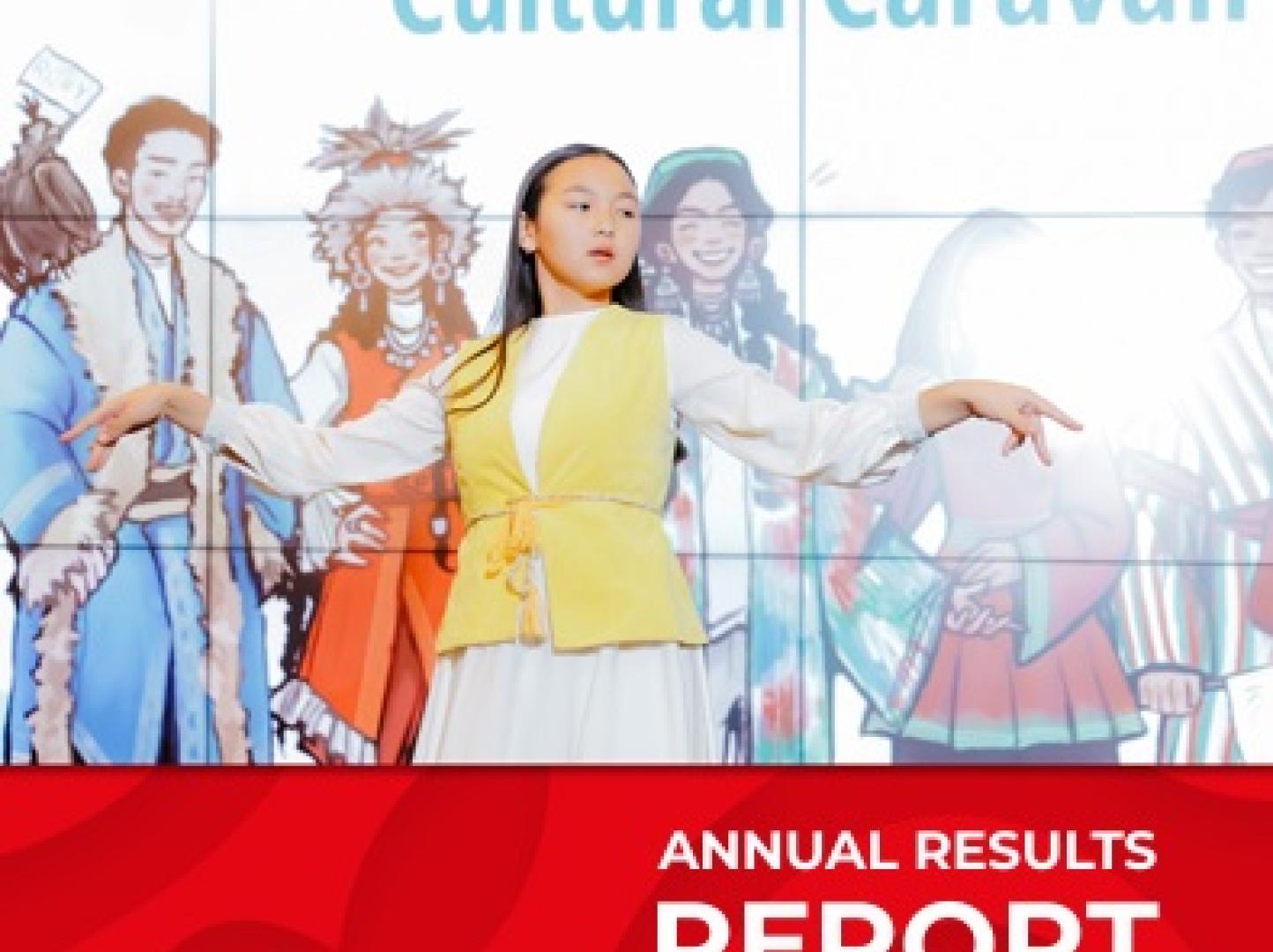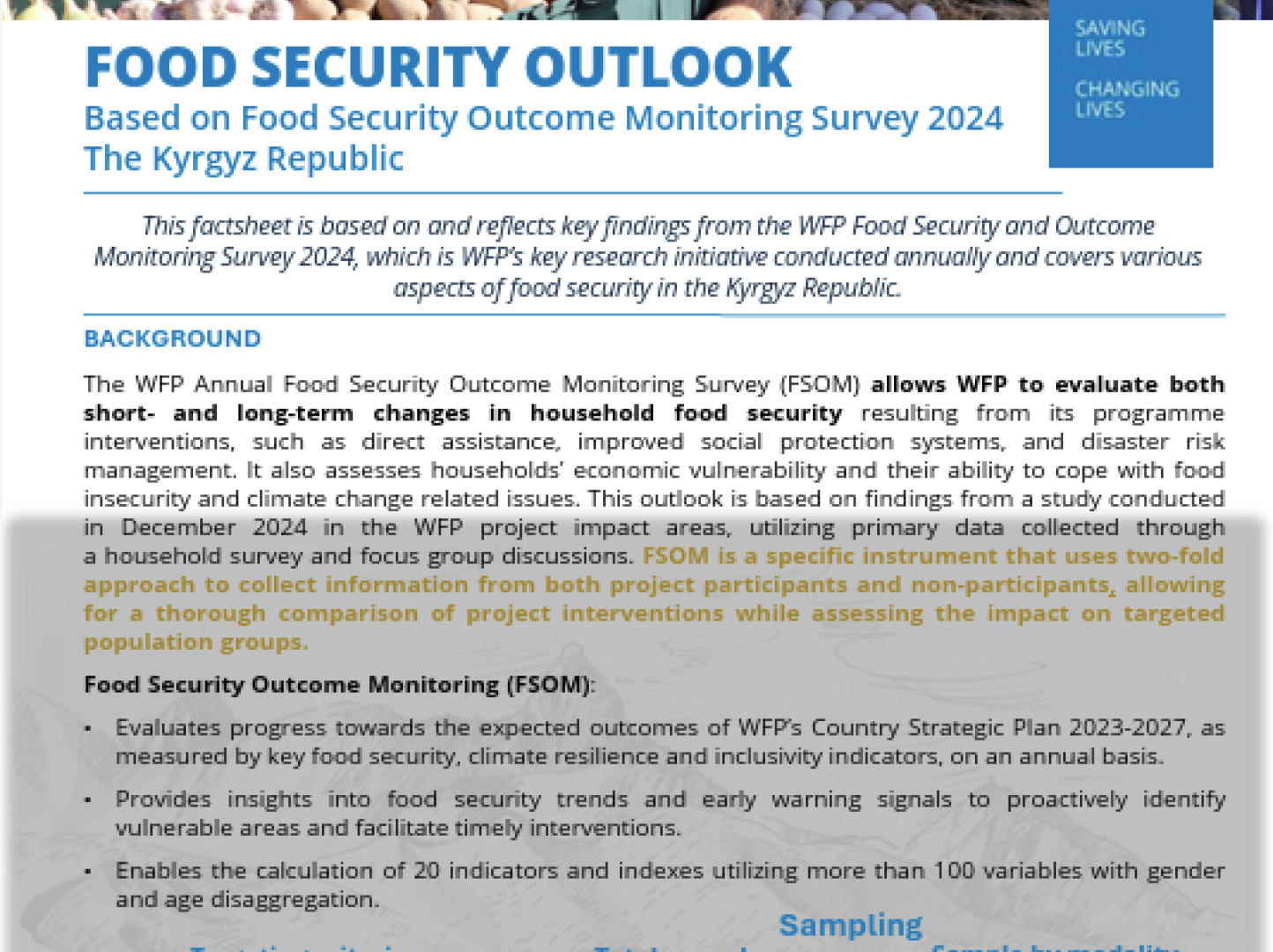Latest
Press Release
19 February 2026
The Ministry of Agriculture, Japan and WFP launch USD 4.5 million project to strengthen climate-resilient agricultural value chain in southern Kyrgyzstan
Learn more
Speech
05 February 2026
Opening Remarks of UNRC in the Kyrgyz Republic, Ms. Antje Grawe at the 6th EU-Central Asia Civil Society Forum
Learn more
Speech
23 January 2026
Speech by the UNRC in the Kyrgyz Republic, Ms. Antje Grawe at the Signing Ceremony of the Zero Violence against Women and Girls Initiative
Learn more
Latest
The Sustainable Development Goals in Kyrgyz Republic
The UN and its partners in Kyrgyzstan are working towards achieving the Sustainable Development Goals. They address the global challenges we face, including those related to poverty, inequality, climate, environmental degradation, prosperity, and peace and justice for development that works for all people. The Goals interconnect and in order to leave no one behind, it is important to act in cooperation.
Story
22 July 2025
“A MOMENT OF OPPORTUNITY: SUPERCHARGING THE CLEAN ENERGY AGE”
Excellencies, Ladies and gentlemen,Friends joining us from around the world, The headlines are dominated by a world in trouble. By conflict and climate chaos.By rising human suffering.By growing geo-political divides. But amidst the turmoil, another story is being written.And its implications will be profound. Throughout history, energy has shaped the destiny of humankind – from masteringfire, to harnessing steam, to splitting the atom.Now, we are on the cusp of a new era. Fossil fuels are running out of road. The sun is rising on a clean energy age.Just follow the money.$2 trillion went into clean energy last year – that’s $800 billion more than fossil fuels, and up almost 70% in ten years.And new data released today from the International Renewable Energy Agency shows that solar – not so long ago four times the cost of fossil fuels – is now 41% cheaper.Offshore wind – 53%.And over 90% of new renewables worldwide produced electricity for less than the cheapest new fossil fuel alternative.This is not just a shift in power. This is a shift in possibility.Yes, in repairing our relationship with the climate.Already, the carbon emissions saved by solar and wind globally are almost equivalent to what the whole European Union produces in a year. But this transformation is fundamentally about energy security and people’s security.It’s about smart economics. Decent jobs, public health, advancing the Sustainable Development Goals. And delivering clean and affordable energy to everyone, everywhere. Today, we are releasing a special report with the support of UN agencies and partners -- the International Energy Agency, the IMF, IRENA, the OECD and the World Bank. The report shows how far we have come in the decade since the Paris Agreement sparked a clean energy revolution. And it highlights the vast benefits – and actions needed – to accelerate a just transition globally. Renewables already nearly match fossil fuels in global installed power capacity.And that’s just the beginning. Last year, almost all the new power capacity built came from renewables. And every continent on Earth added more renewables capacity than fossil fuels.The clean energy future is no longer a promise. It’s a fact. No government. No industry. No special interest can stop it. Of course, the fossil fuel lobby of some fossil fuel companies will try – and we know the lengths to which they will go.But I have never been more confident that they will fail – because we have passed the point of no return. For three powerful reasons. First, market economics. For decades, emissions and economic growth rose together. No more. In many advanced economies, emissions have peaked, but growth continues. In 2023 alone, clean energy sectors drove 10% of global GDP growth. In India, 5%. The United States, 6%. China – a leader in the energy transition – 20%. And in the European Union, nearly 33%. And clean energy sector jobs now outnumber fossil fuel jobs – employing almost 35 million people worldwide. Even Texas – the heart of the American fossil fuel industry – now leads the US in renewables. Why? Because it makes economic sense.And yet fossil fuels still enjoy a 9 to 1 advantage in consumption subsidies globally – a clear market distortion. Add to that the unaccounted costs of climate damages on people and planet – and the distortion is even greater. Countries that cling to fossil fuels are not protecting their economies – they are sabotaging them.Driving up costs. Undermining competitiveness.Locking-in stranded assets.And missing the greatest economic opportunity of the 21st century. Excellencies, Dear friends, Second -- renewables are here to stay because they are the foundation of energy security and sovereignty. Let’s be clear: The greatest threat to energy security today is in fossil fuels. They leave economies and people at the mercy of price shocks, supply disruptions, and geopolitical turmoil. Just look at Russia’s invasion of Ukraine. A war in Europe led to a global energy crisis.Oil and gas prices soared.Electricity and food bills followed.In 2022 average households around the world saw energy costs jump 20%. Modern and competitive economies need stable, affordable energy. Renewables offer both. There are no price spikes for sunlight. No embargoes on wind. Renewables can put power – literally and figuratively – in the hands of people and governments. And almost every nation has enough sun, wind, or water to become energy self-sufficient. Renewables mean real energy security. Real energy sovereignty. And real freedom from fossil-fuel volatility.Dear friends, The third and final reason why there is no going back on renewables: Easy access. You can’t build a coal plant in someone’s backyard. But you can deliver solar panels to the most remote village on earth. Solar and wind can be deployed faster, cheaper and more flexibly than fossil fuels ever could.And while nuclear will be part of the global energy mix, it can never fill the access gaps. All of this is a game-changer for the hundreds of millions of people still living without electricity – most of them in Africa, a continent bursting with renewable potential.By 2040, Africa could generate 10 times more electricity than it needs – entirely from renewables. We are already seeing small-scale and off-grid renewable technologies lighting homes, and powering schools and businesses in remote areas. And in places like Pakistan for example, people-power is fueling a solar surge – consumers are driving the clean energy boom. Excellencies,Dear friends, The energy transition is unstoppable. But the transition is not yet fast enough or fair enough. OECD countries and China account for 80% of renewable power capacity installed worldwide. Brazil and India make up nearly 10%. Africa -- just 1.5%. Meanwhile, the climate crisis is laying waste to lives and livelihoods. Climate disasters in small island states have wiped out over 100% of GDP. In the United States, they are pushing insurance premiums through the roof. And the 1.5 degree limit is in unprecedented peril. To keep it within reach, we must drastically speed up the reduction of emissions – and the reach of the clean energy transition. With manufacturing capacity racing, prices plummeting, and COP30 fast approaching… This is our moment of opportunity. We must seize it. We can do so by taking action in six opportunity areas. First – by using new national climate plans to go all-out on the energy transition. Too often, governments send mixed messages:Bold renewable targets on one day. New fossil fuel subsidies and expansions the next. The next national climate plans, or NDCs, are due in a matter of months.They must bring clarity and certainty. G20 countries must lead. They produce 80% of global emissions. The principle of common but differentiated responsibilities must apply but every country must do more. Ahead of COP30 in Brazil this November, they must submit new plans. I invite leaders to present their new NDCs at an event I will host in September, during General Assembly High-level week. These must:Cover all emissions, across the entire economy.Align with the 1.5 degree limit.Integrate energy, climate and sustainable development priorities into one coherent vision.And deliver on global promises: To double energy efficiency and triple renewables capacity by 2030.And to accelerate the transition away from fossil fuels. These plans must be backed by long-term roadmaps for a just transition to net-zero energy systems – in line with global net-zero by 2050.And they must be underpinned by policies that show that the clean energy future is not just inevitable – but investable. Policies that create clear regulations and a pipeline of projects. That enhance public-private partnerships – unlocking capital and innovation. That put a meaningful price on carbon.And that end subsidies and international public finance for fossil fuels – as promised. Second, this is our moment of opportunity to build the energy systems of the 21st century. The technology is moving ahead. In just fifteen years, the cost of battery storage systems for electricity grids has dropped over 90%. But here’s the problem. Investments in the right infrastructure are not keeping up. For every dollar invested in renewable power, just 60 cents go to grids and storage. That ratio should be one-to-one. We are building renewable power – but not connecting it fast enough. There’s three times more renewable energy waiting to be plugged into grids than was added last year.And fossil fuels still dominate the global total energy mix. We must act now and invest in the backbone of a clean energy future: In modern, flexible and digital grids – including regional integration. In a massive scale-up of energy storage. In charging networks – to power the electric vehicle revolution. On the other hand we need energy efficiency but also electrification -- across buildings, transport and industry. This is how we unlock the full promise of renewables – and build energy systems that are clean, secure and fit for the future.Third, this is our moment of opportunity to meet the world’s surging energy demand sustainably.More people are plugging in. More cities are heating up – with soaring demand for cooling. And more technologies – from AI to digital finance – are devouring electricity. Governments must aim to meet all new electricity demand with renewables. AI can boost efficiency, innovation, and resilience in energy systems. And we must take profit in it.But it is also energy-hungry. A typical AI data-center eats-up as much electricity as 100,000 homes. The largest ones will soon use twenty times that. By 2030, data centres could consume as much electricity as all of Japan does today. This is not sustainable – unless we make it so.And the technology sector must be out front. Today I call on every major tech firm to power all data centres with 100% renewables by 2030.And – along with other industries – they must use water sustainably in cooling systems.The future is being built in the cloud. It must be powered by the sun, the wind, and the promise of a better world. ExcellenciesDear friends, Fourth, this is the moment of opportunity for a just energy transition. The clean energy that we must deliver must also deliver equity, dignity and opportunity for all. That means governments leading a just transition. With support, education and training – for fossil fuel workers, young people, women, Indigenous Peoples and others – so that they can thrive in the new energy economy. With stronger social protection – so no one is left behind. And with international cooperation to help low-income countries that are highly-dependent on fossil fuels and struggling to make the shift.But justice doesn’t stop here. The critical minerals that power the clean energy revolution are often found in countries that have long been exploited. And today, we see history repeating. Communities mistreated. Rights trampled.Environments trashed.Nations stuck at the bottom of value chains – while others reap rewards. And extractive models digging deeper holes of inequality and harm.This must end.Developing countries can play a major role in diversifying sources of supply. The UN Panel on Critical Energy Transition Minerals has shown the way forward – with a path grounded in human rights, justice and equity.Today, I call on governments, businesses and civil society to work with us to deliver its recommendations.Let’s build a future that is not only green – but just.Not only fast – but fair. Not only transformative – but inclusive.Fifth, we have a moment of opportunity to use trade and investment to supercharge the energy transition. Clean energy needs more than ambition. It needs access – to technologies, materials, and manufacturing. But these are concentrated in just a few countries. And global trade is fragmenting. Trade policy must support climate policy. Countries committed to the new energy era must come together to ensure that trade and investment drive it forward. By building diverse, secure, and resilient supply chains.By cutting tariffs on clean energy goods.By unlocking investment and trade – including through South-South cooperation.And by modernizing outdated investment treaties – starting with Investor-State Dispute Settlement provisions. Today, fossil fuel interests are weaponizing these provisions to delay the transition, particularly in several developing countries. Reform is urgent. The race for the new must not be a race for the few. It must be a relay – shared, inclusive and resilient. Let’s make trade a tool for transformation. Sixth and finally, this is our moment of opportunity to unleash the full force of finance – driving investment to markets with massive potential. Despite soaring demand and vast renewables potential -- developing countries are being locked out of the energy transition.Africa is home to 60% of the world’s best solar resources. But it received just 2% of global clean energy investment last year. Zoom out, and the picture is just as stark. In the last decade, only one in every five clean energy dollars went to emerging and developing countries outside China. To keep the 1.5 degree limit alive -- and deliver universal energy access – annual clean energy investment in those countries must rise more than fivefold by 2030. That demands bold national policies. And concrete international action to: Reform the global financial architecture.Drastically increase the lending capacity of multilateral development banks -- making them bigger, bolder, and better able to leverage massive amounts of private finance at reasonable costs; And take effective action on debt relief – and scale up proven tools like debt for climate swaps. Today, developing countries pay outlandish sums for both debt and equity financing – in part because of outdated risk models, bias and broken assumptions that boost the cost of capital. Credit ratings agencies and investors must modernize.We need a new approach to risk that reflects:The promise of clean energy.The rising cost of climate chaos. And the danger of stranded fossil fuel assets.I urge parties to unite to solve the complex challenges facing some developing countries in the energy transition – such as early retirement of coal plants. Excellencies,Dear friends,The fossil fuel age is flailing and failing. We are in the dawn of a new energy era. An era where cheap, clean, abundant energy powers a world rich in economic opportunity.Where nations have the security of energy autonomy.And the gift of power is a gift for all. That world is within reach. But it won’t happen on its own. Not fast enough. Not fair enough.It is up to us. We have the tools to power the future for humanity. Let’s make the most of them. This is our moment of opportunity. And I Thank you.
1 of 5
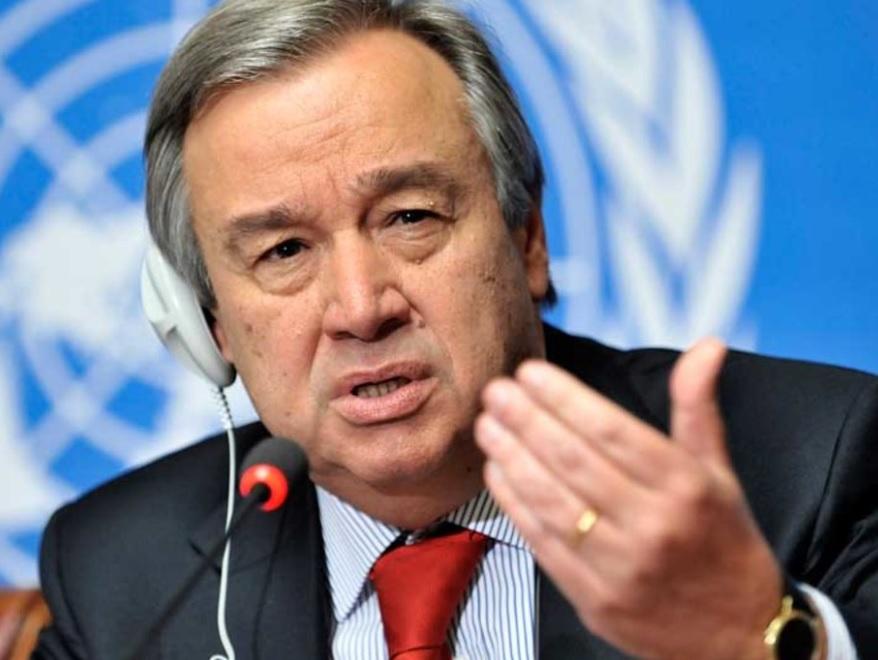
Press Release
20 September 2024
UN expert on rights of persons with disabilities to visit Kyrgyzstan
The UN Special Rapporteur on the rights of persons with disabilities, Heba Hagrass, will conduct an official visit to Kyrgyzstan from 23 September to 3 October 2024.Hagrass will examine laws, policies and measures the Government is taking to protect and promote the rights of persons with disabilities in the country. The visit is taking place at the invitation of the Government.The expert will travel to Bishkek, Osh, Tokmok, and other areas to meet with Government authorities, national human rights institutions, persons with disabilities and their representative organisations, civil society, UN agencies, and other stakeholders.She will also visit institutions for people with disabilities, including for children, and establishments providing services for persons with disabilities. The Special Rapporteur will hold a press conferenceon Thursday 3 October at 11.30 a.m. local time at the UN House in Bishkek, 160 Chui Avenue. Access will be strictly limited to journalists.The expert will present her report to the Human Rights Council in March 2025.***Heba Hagrass (Egypt) is the UN Special Rapporteur on the rights of persons with disabilities, appointed by the Human Rights Council in October 2023. A sociologist by training, she is an advocate, an international disability consultant, and a researcher on the rights of persons with disabilities with an extensive experience in Egypt, the Arab Region, and worldwide. She was notably a representative of women with disabilities that participated in the drafting of the Convention of the Rights of Persons with Disabilities. In Egypt, Ms. Hagrass promoted the rights of persons with disabilities in legislative reforms as Member of Parliament between 2015 and 2020 and served as the Secretary General of the National Council for Disability Affairs. She is a founding member of the Arab Organization of Disabled People where she was active between 1998 and 2008, including as the head of its Women’s Affairs Committee.The Special Rapporteurs are part of what is known as the Special Procedures of the Human Rights Council. Special Procedures, the largest body of independent experts in the UN Human Rights system, is the general name of the Council’s independent fact-finding and monitoring mechanisms that address either specific country situations or thematic issues in all parts of the world. Special Procedures’ experts work on a voluntary basis; they are not UN staff and do not receive a salary for their work. They are independent from any government or organization and serve in their individual capacity. UN Human Rights country page: KyrgyzstanFor media enquiries and additional information, please contact Barbora Zamrska at barbora.zamrska@un.org; hrc-sr-disability@un.org or Aiperi Alymbekova aiperi.alymbekova@un.org (Bishkek). For media inquiries related to other UN independent experts, please contact Dharisha Indraguptha (dharisha.indraguptha@un.org) or John Newland (john.newland@un.org).Follow news related to the UN’s independent human rights experts on Twitter @UN_SPExperts.
1 of 5
Press Release
16 September 2024
Five maternity hospitals received equipment to improve the quality of services for pregnant women, mothers and newborns
A ceremony of handing over equipment at the Perinatal Center of the National Center for Maternity and Child Protection, organized by the Ministry of Health of the Kyrgyz Republic and the United Nations Population Fund (UNFPA) on 12 September 2024, has become another contribution and a significant step towards improving maternal health. As part of the quality improvement project, this initiative is designed to reduce preventable severe maternal morbidity in the country. The ceremony was attended by high-ranking officials, including the First Deputy Minister of Health, Meder Ismailov, who noted in his speech: “This project is very important for the country, as it is aimed at reducing preventable maternal morbidity. I would like to take this opportunity to thank the Government of India for this support and UNFPA for implementing this project, and I wish my colleagues good results in implementing this vital project.”The equipment was handed over as part of a project funded by the India-UN Development Partnership Fund. It aims to improve access to quality medical services through the use of the Obstetric Surveillance and Response System (OSRS) and teleconsultations in five pilot maternity hospitals in Kyrgyzstan.“It is a great honor for me to be a part of this event as well as a project related to the health of the population of the Kyrgyz Republic. Health is the most important value in life, and when it comes to mothers, the issue becomes paramount. And when we invest in the health of a mother, we invest not only in the health of one person, but also in the health of her children, her loved ones and, accordingly, the whole society. Such health-related costs become not expenses, but investments. And when we invest in the health of the population, we contribute to the development of the country itself,” said Mr. Mohan Singh, Chargé d'Affaires of the Embassy of India in the Kyrgyz Republic. During the ceremony, which was timed to coincide with the United Nations Day for South-South Cooperation, a wide range of necessary equipment was handed over, emphasizing the universal desire to strengthen the health of mothers and newborns. Among the gifts were 40 tablets for monitoring the process of childbirth and providing assistance to pregnant women and newborns during labor and delivery in real time, and 21 computers for the introduction of telemedicine and teleconsultations in real time in case of urgent obstetric conditions.In addition, in order to automate the process of issuing birth certificates and integrate the service on the State Portal of Electronic Services, computers will be installed in pilot maternity hospitals as an important step in improving the quality of public services and simplifying procedures for citizens. This will allow parents to issue birth certificates for their children online while still in maternity hospitals, which will significantly speed up the process of obtaining a document and reduce the need to visit government agencies.With mentioned solutions, the Ministry of Health of the Kyrgyz Republic seeks to create more convenient and efficient conditions for citizens, simplifying bureaucratic processes and reducing the time spent on obtaining important documents. In addition to technical equipment, 100 power banks, 100 blankets for low-weight and premature newborns to maintain and preserve the thermal chain, 100 elbow dispensers for organizing work taking into account infection control, and 100 pairs of closed shoes for surgical medical personnel for use in operating rooms and sterile zones, as an important element of professional uniforms in order to comply with hygiene and sanitary safety standards, will be delivered to five maternity hospitals of the secondary and tertiary levels, namely Osh Interregional United Clinical Hospital, Jalal-Abad United Clinical Hospital, Issyk-Kul and Chui Regional United Hospital and the Perinatal Center of the National Center for Maternity and Child Protection.This comprehensive initiative has the potential to make a significant contribution to improving maternal health in Kyrgyzstan. By leveraging technology and fostering collaboration, it demonstrates the commitment of all involved partners to ensuring the safety and well-being of women and newborns across the country.
1 of 5
Speech
12 August 2024
Statement of UN Resident Coordinator, Ms Antje Grawe, on the occasion of International Youth Day
While I regret that I cannot be with you in person to celebrate the energy, creativity, and potential of young people in Kyrgyzstan and around the world, I am very much honored to send this celebratory message. Since its establishment by the UN General Assembly in 1999, International Youth Day on 12 August highlights youth issues and their crucial role in global society.This year’s International Youth Day is particularly special for several reasons:This year’s theme “From Clicks to Progress: Youth Digital Pathways for Sustainable Development,” emphasizes the pivotal role of youth in harnessing technology to achieve the Sustainable Development Goals (SDGs). In Kyrgyzstan and globally, young people are using digital tools to address local and global challenges and “turn clicks into progress” (UN Secretary-General, António Guterres).Given the current state of the Sustainable Development Goals (SDGs), empowering youth is essential. As the Secretary-General stated on the occasion, achieving the SDGs requires a seismic shift that can only happen by empowering young people and working with them as equals. This includes bridging digital divides, boosting education investments, tackling gender biases in the tech industry, and supporting young innovators in expanding digital solutions.Youth empowerment and participation are central to this year’s Summit of the Future, convened by the UN Secretary-General in New York on 22 and 23 September at the level of Heads of States, including President Japarov. The Summit is an opportunity to build global problem-solving mechanisms that are more networked and inclusive, with youth being given a key role. The Secretary-General has called on global leaders to use the Summit to advance youth participation at every level, establish youth consultative bodies, promote intergenerational dialogue and scale up funding opportunities for young people everywhere.Where else could this call resonate more than here in Kyrgyzstan, where young people make up nearly one-third of the population and are demonstrating daily how vital their fresh perspectives and innovative solutions are in advancing inclusive social and economic development and addressing challenges like climate change, environmental protection, social justice, health or education.Let’s use this year’s International Youth Day and today’s event as a building block towards the Summit’s promise of greater youth participation in decision-making that shapes their future, and commit to investing in young people's potential.By providing tools, resources, and opportunities, we can harness their energy and creativity for sustainable development and a better future for all.The United Nations in Kyrgyzstan supports youth empowerment through initiatives like the Youth Advisory Board to the UN Country Team, which gives young people a voice in shaping the UN’s partnership with Kyrgyzstan to advance the SDGs. We will also continue investing in health, education reforms, employment, the creative industries, and digital literacy, among other, crucial for sustainable economy and inclusive and equitable development. Chon Rahmat.
1 of 5
Video
10 September 2024
Access to Markets Project: Artificial glaciers
The engineers have come up with an effective way to conserve freshwater - building artificial glaciers. Artificial glaciers not only provide better access to drinking water, but also improve pasture rotation, improve microclimate and increase soil moisture, reduce pressure on pastures, help adapt to climate change and mitigate its effects.The Access to Markets Project helped the authors of this initiative to set up 11 artificial glaciers by procuring the necessary materials, funding construction and installation, and conducting trainings to disseminate the method. In total, the authors have implemented 30 projects in six regions of Kyrgyzstan. This video collection was prepared within the framework of the Access to Markets Project funded by the International Fund for Agricultural Development (IFAD).The Access to Markets Project (ATMP) is an IFAD-funded project of USD 31.2 million, which was approved in 2016 and will end in December 2024. It aims to raise incomes and enhance economic growth in Kyrgyzstan's pastoralist communities. Its development objective is the improved access and integration of smallholder livestock farmers into remunerative markets for their products, leading to improved and equitable returns.
1 of 5

Story
10 December 2025
Message of United Nations Secretary-General António Guterres for Human Rights Day: “Human Rights: Our Everyday Essentials”
It was a philosophical and political breakthrough — and it has been the bedrock of our global community ever since.Human rights — civil, political, economic, social and cultural — are inalienable, indivisible and interdependent. But recent years have brought a shrinking of civic space. We have grave violations that signal a flagrant disregard for rights, and a callous indifference to human suffering.Together, we have the power to confront these injustices: by protecting the institutions that make human rights a lived reality.Every day, the United Nations helps people around the world realize their most basic rights. Together with civil society and governments, we deliver food and provide shelter; support education and elections; clear mines; defend the environment; empower women; and strive for peace.But we cannot do it alone. This work depends on all people, everywhere, taking a stand. When we protect the most vulnerable, when we refuse to look away, when we speak up for the institutions that speak up for us, we keep human rights alive.Our rights should never take second place to profit or power. Let us unite to protect them, for the dignity and freedom of all.
1 of 5

Story
04 July 2025
Subcommittee on Prevention of Torture concluded its official visit to Kyrgyzstan for High-Level Talks
The UN Subcommittee on Prevention of Torture (SPT), concluding its official visit to Kyrgyzstan for High-Level Talks, expressed its regret over the Parliament’s recent decision to abolish the country’s independent torture prevention body — the National Centre for the Prevention of Torture (NCPT) — without any public consultation or transparency or indeed a plan as to how the Ombuds Institution, which is to take over from the NCPT, is to fulfil this mandate. The SPT delegation, visiting Kyrgyzstan from 25 to 27 June, was composed of Elina Šteinerte (Head of Delegation and Vice-Chair for National Preventive Mechanisms) and Nika Kvaratskhelia (Country Rapporteur for Kyrgyzstan).During the visit, the delegation took part in a round table discussion on “The role and place of the National Centre for the Prevention of Torture in Kyrgyzstan’s anti-torture system”, held on 26 June — the International Day in Support of Victims of Torture. Organized by the NCPT in cooperation with UN Human Rights Central Asia, the event brought together parliamentarians, representatives of state institutions, civil society, international partners, and other stakeholders for an open dialogue on national and international obligations to prevent torture. “On the International Day in Support of Victims of Torture, we pay tribute to National Preventive Mechanisms who stand at the forefront of preventing torture. Today, however, we are deeply concerned by Kyrgyzstan’s decision to dismantle its NPM — a major step back in the fight against torture,” said Elina Šteinerte, referring to the Parliament’s adoption on 25 June of the new Constitutional Law “On the Akyikatchy (Ombudsman) of the Kyrgyz Republic,” which effectively dissolves the NCPT.The delegation also held high-level meetings with Deputy Chair of the Cabinet of Ministers Edil Baisalov, Deputy Minister of Justice Kuban Kazakov, Deputy Minister of Foreign Affairs Asein Isaev, and the Ombudsperson Dzhamilia Dzhamanbaeva. In the meeting with Edil Baisalov, the SPT emphasized the importance of ensuring that the new Constitutional Law does not weaken the State’s ability to uphold its obligations under the Optional Protocol to the Convention against Torture (OPCAT), particularly in safeguarding the functional, financial, and institutional independence of the National Preventive Mechanism. Edil Baysalov emphasized that the country consistently fulfills its international obligations in this area. Established in 2012, the NCPT has served as Kyrgyzstan’s National Preventive Mechanism since the country acceded to OPCAT in 2008, playing a key role in monitoring places of detention and working to prevent torture and ill-treatment nationwide.
1 of 5
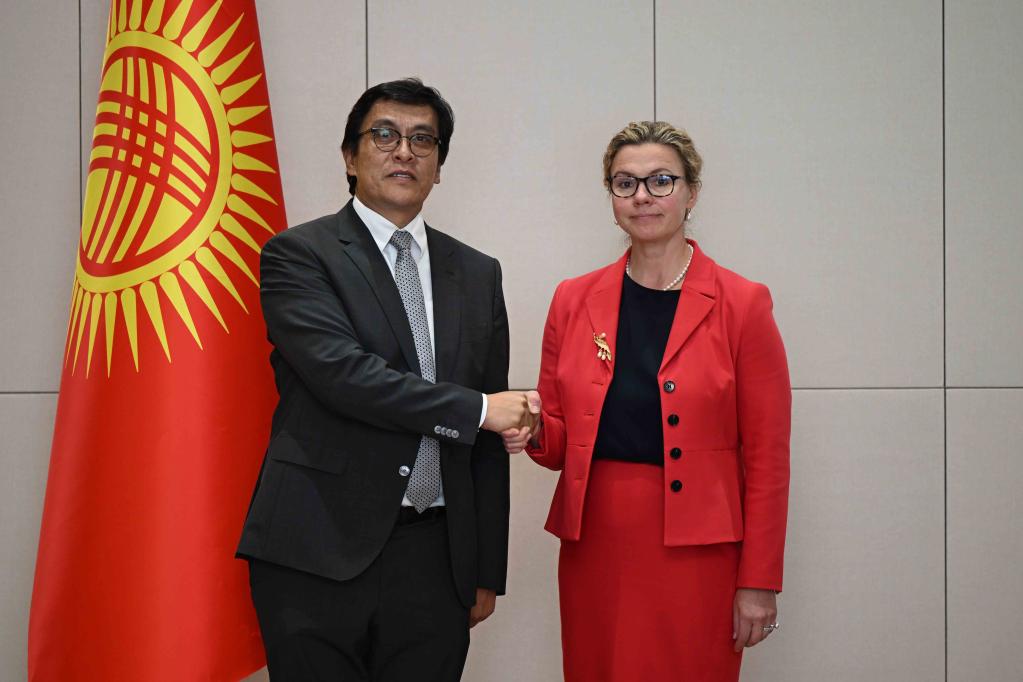
Story
23 May 2025
Kyrgyz Republic unveils 800,000-hectare ecological corridor for biodiversity
Bishkek, 22 May 2025 – A new ecological corridor of around 800,000 hectares, or 8,000 km², has been announced by the Kyrgyz Republic today. The corridor is set to link up existing conservation areas and complete a protected area spanning a total of over 1,2 million hectares, in a landmark move for biodiversity. The UN Environment Programme (UNEP) supported the Kyrgyz government by providing ecological modelling to help define the corridor’s borders. The area will connect the Khan-Tengri National Park and Naryn Nature Reserve, passing through several other conservation areas along the way. The corridor aims to safeguard migration and dispersal routes for key mountain wildlife species under pressure from changing habitat conditions due to overgrazing and climate change. The species include snow leopards, which are listed as Vulnerable on the IUCN Red List of Threatened Species, and its prey species, such as the Asiatic ibex and the argali sheep. This ecological corridor is the biggest to be created under the Kyrgyz Republic’s Law on Specially Protected Natural Areas. Ecological corridors balance conservation goals with sustainable land use. While they are legally part of the protected area system, the corridors allow activities like seasonal grazing with some limitations, ecotourism, and reforestation, provided they do not harm biodiversity or disrupt ecological processes such as wildlife migration. Previously, over 65,000 sheep grazed in the corridor area during summer months. With the corridor's introduction, grazing planning and the rotation of livestock herds will be adapted to reduce this figure by 15,000, leaving mountain pastures more time to recover and providing grazing opportunities for wildlife. The redistribution process, coordinated with local herders and community leaders, aims to protect livelihoods while environmental goals are met.“The establishment of this corridor marks a major milestone in conservation for Central Asia and can serve as a model for the region,” said UNEP’s Europe Office Director, Arnold Kreilhuber. "By creating a network of connected landscapes, the Kyrgyz Republic is leading the way in preserving not only iconic species like the snow leopard, but also safeguarding the nature that people’s livelihoods depend on.” “This is a collaborative effort to conserve our ecosystems without excluding the people who rely on them,” said Mirslav Amankulov, Deputy Minister of Natural Resources, Environment and Technical Supervision of the Kyrgyz Republic. “There are no permanent settlements within the corridor, and we’ve worked closely with herders to ensure fair access to alternative pastureland.”The corridor was established following a modelling study conducted by Humboldt University in Berlin and the National Academy of Sciences of the Kyrgyz Republic under a UNEP-led project. The modeled ecological corridor outlines were presented at community roundtables and received unanimous support from local authorities and scientific institutions.Looking ahead, the country plans to integrate ecological corridors into other sectoral planning and policy - such as national pasture development plans and hunting regulations - to support biodiversity conservation. Monitoring systems, including biomass assessments, will help to oversee pasture use and track ecological health.“Ecological corridors are a crucial way to ensure that, despite the changing climate, ecosystems can continue to provide essential services that people and nature rely on — from clean water and fertile soils to climate resilience and room for migration,” said Johan Robinson, Officer in Charge for UNEP’s Biodiversity and Land Branch, Ecosystems Division. “The Kyrgyz Republic is choosing a more sustainable future for both nature and communities”.To enhance climate-smart conservation in Central Asia, the possibility of establishing transboundary ecological corridors extending beyond the Kyrgyz Republic is being considered.This announcement coincides with the International Day for Biological Diversity on May 22, highlighting the Kyrgyz Republic’s commitment to global efforts in preserving the planet’s natural heritage.Support for the ecological corridor was provided through the UNEP-led ‘Central Asian Mammals and Climate Adaptation’ (CAMCA) project, funded by the International Climate Initiative of the German government, in collaboration with the Convention on Migratory Species (CMS), WWF USA, and two Kyrgyz NGO’s, CAMP Alatoo and Ilbirs Foundation. The project aims to enhance the conservation of flagship migratory mammal species of Central Asia through climate change-informed management and decision-making.Download photos from the newly created ecological corridor here.Notes to EditorsAbout the UN Environment ProgrammeThe UN Environment Programme is the leading global voice on the environment. It provides leadership and encourages partnership in caring for the environment by inspiring, informing and enabling nations and peoples to improve their quality of life without compromising that of future generations.For more information and to arrange interviews, please contact:Aisulu Isabek, Spokesperson at the Ministry of Natural Resources, Ecology and Technical Supervision of the Kyrgyz Republic, press@mnr.gov.kg, +996509301190. Alejandro Laguna, Head of Communication, UNEP Europe Office, laguna@un.org, +41 766910848.
1 of 5

Story
21 May 2025
2025 Report of the Chair of the UN Sustainable Development Group
Six years into the repositioning, 2024 was a hallmark year for the Resident Coordinator system. The Resident Coordinator system continued to deliver for countries, mobilizing UN country teams, donors and partners in support of national development needs and priorities. The findings, detailed in the annual report of the UN Deputy Secretary-General Amina Mohammed, in her capacity as Chair of the UN Sustainable Development Group (UNSDG), are being presented to Member States during the ECOSOC Segment on Operational Activities for Development (20-22 May 2025). The 2024 data underscores how Resident Coordinators are effectively steering UN teams and forging partnerships on the ground to deliver tangible results. Resident Coordinators have been at the forefront of convening country level efforts to accelerate the delivery of the Sustainable Development Goals (SDGs) through robust coordination and convening functions. Read the official document of the report below and browse through the interactive version of the report here. https://bit.ly/UNSDGReport2025
1 of 5
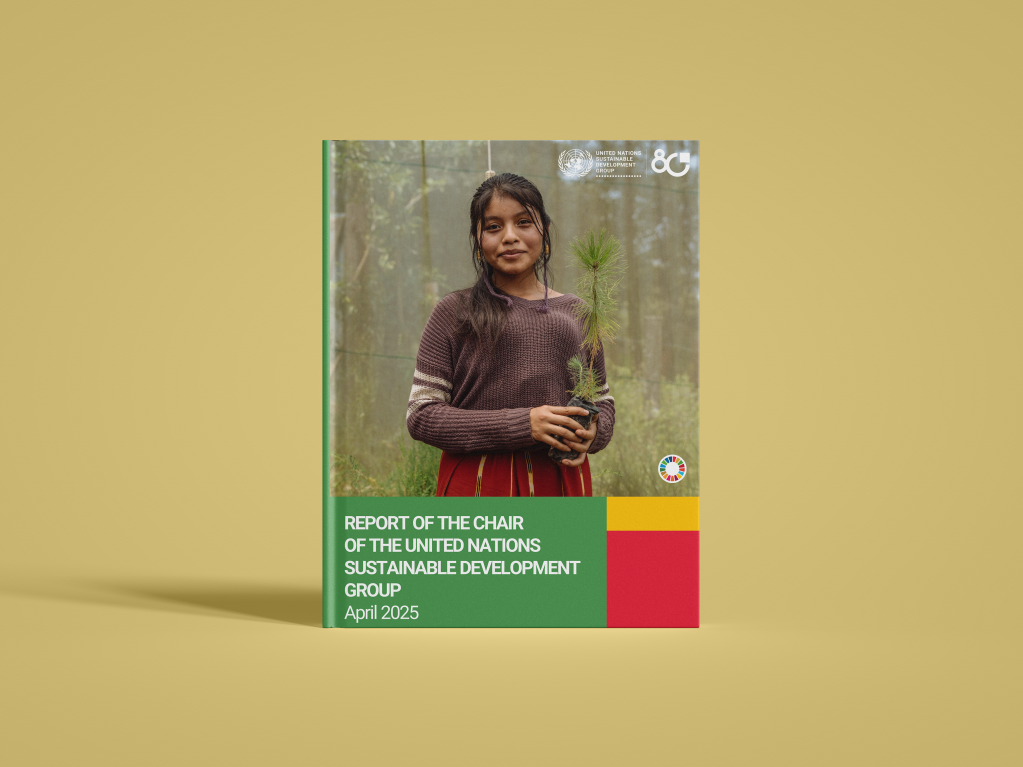
Story
28 March 2025
UN in Kyrgyzstan Annual Result Report 2024
This report reflects UNCT' collective progress in implementing the UNSDCF across its four strategic priorities, aligned with the Kyrgyz Republic’s national development agenda. It highlights how the UN system, in close partnership with the Kyrgyz Government and the people of Kyrgyzstan, has worked to accelerate progress towards the SDGs, building on Kyrgyzstan’s strong commitment to the SDGs, reaffirmed at the 2023 SDG Summit and again at the 2024 Summit of the Future.Read more: https://kyrgyzstan.un.org/en/291795-un-kyrgyzstan-annual-result-report-2024-eng
1 of 5

Press Release
19 February 2026
The Ministry of Agriculture, Japan and WFP launch USD 4.5 million project to strengthen climate-resilient agricultural value chain in southern Kyrgyzstan
Agriculture remains the main source of livelihoods for rural communities in the country, yet the sector is increasingly affected by climate change, water stress, and limited access to modern climate-smart farming practices.“This initiative supports our national priorities to boost agricultural productivity and strengthen agricultural cooperatives to ultimately build resilience among farmers,” said Mr. Bakyt Torobayev the Deputy Chairman of the Cabinet of Ministers - Minister of Water Resources, Agriculture and Processing Industry. “This partnership demonstrates the importance of coordinated efforts to support smallholder farmers nationwide and promote the integration of rural producers.”With a contribution of USD 4.5 million from the Government of Japan, the project will support 17,000 smallholder farmers in Batken, Jalal-Abad, and Osh provinces, strengthening food security, nutrition, and livelihoods in the most climate vulnerable regions. By empowering smallholder farmers, especially women, through self-help groups/agricultural cooperatives, this initiative will boost productivity and incomes, improve sustainable water and land management, and strengthen market linkages in mountainous communities.“Japan is pleased to support this initiative, which contributes to sustainable rural development in the Kyrgyz Republic,” said his excellency Mr. Hirano Ryuichi, Ambassador Extraordinary and Plenipotentiary of Japan to Kyrgyzstan. “Through this project, we aim to strengthen food systems and empower smallholder farmers to achieve long-term food security and economic stability.”The project will be carried out with its technical support and oversight from Japan International Cooperation Agency (JICA), contributing to the Ministry’s master plan for value chain development of berries and vegetables through the cluster-based approach.“This new initiative builds on that foundation by strengthening linkages across the value chain, improving farmers’ productivity and incomes, and further advancing cluster development under the master plan.” said Mr. Nishigata, Chief Representative of the Japan International Cooperation Agency (JICA) in the Kyrgyz Republic.The initiative will provide farmers with high-quality seedlings, climate-resilient greenhouse infrastructure equipped with drip irrigation, water reservoirs, organic composting facilities, and small storage units to reduce post-harvest losses. Farmers will also receive training in climate-smart agricultural practices, post-harvest management, cooperative governance and financial management.“The partnership with the Government of Japan and the Ministry of Water Resources, Agriculture and Processing Industry reflects our shared commitment to supporting the implementation of the National Development Program of the Kyrgyz Republic until 2030 and the Food Security and Nutrition Program 2025-2030,” said Mr. Kojiro Nakai, WFP Representative and Country Director in the Kyrgyz Republic. “Given the recent water stresses and weather anomalies, by investing in climate s-smart solutions, we are helping smallholder farmers build sustainable livelihoods resilient to climate hazards”Japan remains a longstanding and strategic partner of WFP in the Kyrgyz Republic. Building on previous support, including emergency assistance during the Batken crisis, market-oriented Public-Private Partnerships and promoting climate-smart agriculture methods, this new contribution will further strengthen the resilience of rural communities and support human capital development nationwide.
# # #The United Nations World Food Programme is the world’s largest humanitarian organization, saving lives in emergencies and using food assistance to build a pathway to peace, stability, and prosperity for people recovering from conflict, disasters, and the impact of climate change.For more information please contact:Almaz Tchoroev, WFP Kyrgyz Republic Mobile.: +996550577597, e-mail: almaz.tchoroev@wfp.or
# # #The United Nations World Food Programme is the world’s largest humanitarian organization, saving lives in emergencies and using food assistance to build a pathway to peace, stability, and prosperity for people recovering from conflict, disasters, and the impact of climate change.For more information please contact:Almaz Tchoroev, WFP Kyrgyz Republic Mobile.: +996550577597, e-mail: almaz.tchoroev@wfp.or
1 of 5
Press Release
15 December 2025
Presentation of Final Results of the UN Global Disability Fund Project in Kyrgyzstan
The meeting highlighted significant progress in strengthening national systems, legislation, and services to advance the rights and inclusion of persons with disabilities across the country. The event brought together senior government officials, heads of UN entities, organizations of persons with disabilities, and civil society partners. Participants reviewed key achievements, discussed ongoing challenges, and identified priorities for sustaining and deepening disability inclusion in national development efforts.
In her opening remarks, UN Resident Coordinator Antje Grawe emphasized the UN’s unwavering commitment to supporting the Government of the Kyrgyz Republic in building an inclusive society grounded in the principles of the UN Convention on the Rights of Persons with Disabilities (CRPD), the 2030 Agenda for Sustainable Development, and the pledge to Leave No One Behind. She highlighted the importance of institutional coordination, inclusive policymaking, and active engagement of persons with disabilities in decision-making processes. Government representatives, including Ainura Orozbaeva, Deputy Minister of Labour, Social Welfare and Migration, and Tolkunbek Isakov, Deputy Chair of the Council for Persons with Disabilities, outlined national priorities for strengthening accessibility, improving service provision, and advancing disability-inclusive development, noting that the project has laid a strong foundation for continued reforms.
Senior officials from UNDP, UNFPA and UNICEF reaffirmed the UN system’s collective support to national efforts and underscored the central role of partnership in achieving sustainable, system-wide change. Throughout 2024–2025, the project recorded measurable progress across several thematic areas, including:integration of disability inclusion, gender equality, and climate considerations into national policy frameworks;strengthened support systems for children with disabilities, including early intervention and access to education;enhancement of national disability data collection and analysis;capacity-building of the Disability Council and organizations of persons with disabilities;progress in aligning national legislation with the UNCRPD;knowledge exchange initiatives, including study visits to Belarus and Portugal to learn from international best practices.During the final session, Council members discussed the project’s outcomes, shared recommendations, and adopted a protocol decision on the conclusion of the initiative. They also agreed to timelines for preparing and finalizing the project’s closing report. The two-year initiative was jointly implemented by UNDP, UNFPA and UNICEF under the overall coordination of the UN system in Kyrgyzstan and with support from the UN Global Disability Fund. Its achievements mark a meaningful step toward ensuring that all persons with disabilities in Kyrgyzstan can fully exercise their rights and participate in social, economic, and public life on an equal basis with others. * The UN Global Disability Fund (GDF), formerly UNPRPD, is a global multi-partner fund established in 2012 to accelerate the implementation of the Convention on the Rights of Persons with Disabilities (CRPD). It brings together UN entities, governments, organizations of persons with disabilities and civil society to drive systemic, sustainable disability inclusion through coordinated, country-led programmes. Operating via a Multi-Partner Trust Fund, GDF has mobilized over USD 90 million to date, with major contributions from Finland, Australia, Sweden (SIDA), the United Kingdom (FCDO), Norway, Germany, the European Union, Canada, Ireland and Mexico, as well as seed funding from Germany’s BMZ for specific initiatives.
In her opening remarks, UN Resident Coordinator Antje Grawe emphasized the UN’s unwavering commitment to supporting the Government of the Kyrgyz Republic in building an inclusive society grounded in the principles of the UN Convention on the Rights of Persons with Disabilities (CRPD), the 2030 Agenda for Sustainable Development, and the pledge to Leave No One Behind. She highlighted the importance of institutional coordination, inclusive policymaking, and active engagement of persons with disabilities in decision-making processes. Government representatives, including Ainura Orozbaeva, Deputy Minister of Labour, Social Welfare and Migration, and Tolkunbek Isakov, Deputy Chair of the Council for Persons with Disabilities, outlined national priorities for strengthening accessibility, improving service provision, and advancing disability-inclusive development, noting that the project has laid a strong foundation for continued reforms.
Senior officials from UNDP, UNFPA and UNICEF reaffirmed the UN system’s collective support to national efforts and underscored the central role of partnership in achieving sustainable, system-wide change. Throughout 2024–2025, the project recorded measurable progress across several thematic areas, including:integration of disability inclusion, gender equality, and climate considerations into national policy frameworks;strengthened support systems for children with disabilities, including early intervention and access to education;enhancement of national disability data collection and analysis;capacity-building of the Disability Council and organizations of persons with disabilities;progress in aligning national legislation with the UNCRPD;knowledge exchange initiatives, including study visits to Belarus and Portugal to learn from international best practices.During the final session, Council members discussed the project’s outcomes, shared recommendations, and adopted a protocol decision on the conclusion of the initiative. They also agreed to timelines for preparing and finalizing the project’s closing report. The two-year initiative was jointly implemented by UNDP, UNFPA and UNICEF under the overall coordination of the UN system in Kyrgyzstan and with support from the UN Global Disability Fund. Its achievements mark a meaningful step toward ensuring that all persons with disabilities in Kyrgyzstan can fully exercise their rights and participate in social, economic, and public life on an equal basis with others. * The UN Global Disability Fund (GDF), formerly UNPRPD, is a global multi-partner fund established in 2012 to accelerate the implementation of the Convention on the Rights of Persons with Disabilities (CRPD). It brings together UN entities, governments, organizations of persons with disabilities and civil society to drive systemic, sustainable disability inclusion through coordinated, country-led programmes. Operating via a Multi-Partner Trust Fund, GDF has mobilized over USD 90 million to date, with major contributions from Finland, Australia, Sweden (SIDA), the United Kingdom (FCDO), Norway, Germany, the European Union, Canada, Ireland and Mexico, as well as seed funding from Germany’s BMZ for specific initiatives.
1 of 5
Press Release
25 November 2025
Kyrgyzstan Advances National Priorities Following Doha World Social Summit
Participants noted the strong alignment between the Doha Political Declaration and the National Development Program 2030, which calls for a whole-of-government and whole-of-society effort to expand opportunities in education, health, skills development, decent work, and social inclusion.
These ambitions — reflected also in Kyrgyzstan’s goal of joining the Top-30 SDG achievers worldwide by 2030 — provide a clear direction for continued collaboration with the Government’s partners in support of national priorities.
Reflecting the Government’s resolve to turn global commitments into national action, Deputy Chairman of the Cabinet of Ministers, Mr. Edil Baisalov, noted: “The Doha Political Declaration fully aligns with our national course: we are mobilizing all national and international resources to strengthen social protection, education, healthcare, and decent work. Improving people’s living standards and well-being is our top priority, firmly embedded in the National Development Programme until 2030.”The United Nations Resident Coordinator, Ms. Antje Grawe, stressed the importance of collective action — bringing together the Government, civil society, development partners, the private sector, and the UN’s 27 agencies — to align priorities and advance implementation. She added that “making strategic and well-targeted use of fiscal space and development finance will be critical to expand social protection systems, build resilient health and education services, and promote decent employment opportunities, particularly for women and youth.”
Background:The Second World Summit for Social Development (WSSD), hosted by the State of Qatar in Doha from 4–6 November 2025, renewed global commitment to a people-centered social contract grounded in dignity, inclusion, equality and sustainable development. The Doha Political Declaration closely aligns with Kyrgyzstan’s National Development Program 2030, which pursues accelerated, inclusive growth, among others, through stronger human capital, decent work, resilient social systems, and a green economic transition. Several priority areas of the United Nations Sustainable Development Cooperation Framework (UNSDCF) 2023–2027, implemented by 27 UN Agencies in Kyrgyzstan, reinforce this direction, notably inclusive access to quality social services, support for green socio-economic development, and strengthened governance and financing for sustainable development. Together, the outcomes of Doha Political Declaration, the National Development Program 2030 and the UNSDCF 2023-27 form a coherent and mutually reinforcing agenda for investing in sustainable prosperity in the Kyrgyz Republic, thereby leaving no one behind.
These ambitions — reflected also in Kyrgyzstan’s goal of joining the Top-30 SDG achievers worldwide by 2030 — provide a clear direction for continued collaboration with the Government’s partners in support of national priorities.
Reflecting the Government’s resolve to turn global commitments into national action, Deputy Chairman of the Cabinet of Ministers, Mr. Edil Baisalov, noted: “The Doha Political Declaration fully aligns with our national course: we are mobilizing all national and international resources to strengthen social protection, education, healthcare, and decent work. Improving people’s living standards and well-being is our top priority, firmly embedded in the National Development Programme until 2030.”The United Nations Resident Coordinator, Ms. Antje Grawe, stressed the importance of collective action — bringing together the Government, civil society, development partners, the private sector, and the UN’s 27 agencies — to align priorities and advance implementation. She added that “making strategic and well-targeted use of fiscal space and development finance will be critical to expand social protection systems, build resilient health and education services, and promote decent employment opportunities, particularly for women and youth.”
Background:The Second World Summit for Social Development (WSSD), hosted by the State of Qatar in Doha from 4–6 November 2025, renewed global commitment to a people-centered social contract grounded in dignity, inclusion, equality and sustainable development. The Doha Political Declaration closely aligns with Kyrgyzstan’s National Development Program 2030, which pursues accelerated, inclusive growth, among others, through stronger human capital, decent work, resilient social systems, and a green economic transition. Several priority areas of the United Nations Sustainable Development Cooperation Framework (UNSDCF) 2023–2027, implemented by 27 UN Agencies in Kyrgyzstan, reinforce this direction, notably inclusive access to quality social services, support for green socio-economic development, and strengthened governance and financing for sustainable development. Together, the outcomes of Doha Political Declaration, the National Development Program 2030 and the UNSDCF 2023-27 form a coherent and mutually reinforcing agenda for investing in sustainable prosperity in the Kyrgyz Republic, thereby leaving no one behind.
1 of 5
Press Release
24 October 2025
United Nations and Kyrgyzstan Mark 80 Years of the United Nations – “Better Together for Peace, Development and Human Rights”
The celebration brought together the many national and international partners of the United Nations system, including senior government officials, parliamentarians, civil society, youth, media, international partners and UN staff, to reaffirm the shared commitment of Kyrgyzstan and the United Nations to the principles of peace, sustainable development, and human rights. In her opening remarks, UN Resident Coordinator in the Kyrgyz Republic, Antje Grawe, highlighted the continued importance of dialogue and partnership in addressing global and local challenges: “Just like tonight’s komuz orchestra with its 80 players, the United Nations brings together many distinct voices, each with its own tone and rhythm, yet capable of creating harmony when they play together toward a common purpose. That, at its heart, is what the United Nations — and what multilateralism — are about: unity in diversity and strength through cooperation.” The event featured statements by H.E. Jeenbek Kulubaev, Minister of Foreign Affairs of the Kyrgyz Republic. In his remarks, the Minister emphasized that the history of Kyrgyz diplomacy closely intertwines with the history of the United Nations, united by a common purpose — to serve peace, development, and international cooperation. “Last year, we celebrated the 80th anniversary of our diplomatic service, and the fact that it was founded on the same day as the United Nations is no mere coincidence. Together with the UN, Kyrgyzstan has come a long way — through contradictions and challenges, periods of formation and tension, sometimes along a broad and sometimes along a narrow path of development,” Jeenbek Kulubaev noted. Following the opening remarks, a panel discussion was held on the theme “The UN at 80: Partnership and Goals in a Changing World”, featuring representatives of civil society and the expert community. A “UN Village” exhibition showcased the work of the 27 UN agencies working in Kyrgyzstan across four thematic areas – Peace, Development, Human Rights, and Gender Equality – illustrating the joint efforts of the UN and its partners in advancing the Sustainable Development Goals across Kyrgyzstan. Background
UN Day marks the anniversary of the entry into force of the UN Charter on 24 October 1945. For 80 years, the Charter has guided collective efforts to promote peace, sustainable development, and human rights for all. Kyrgyzstan became a member of the United Nations organization on 2 March 1992 and a permanent mission of the UN in Kyrgyzstan was opened in 1993.
UN Day marks the anniversary of the entry into force of the UN Charter on 24 October 1945. For 80 years, the Charter has guided collective efforts to promote peace, sustainable development, and human rights for all. Kyrgyzstan became a member of the United Nations organization on 2 March 1992 and a permanent mission of the UN in Kyrgyzstan was opened in 1993.
1 of 5
Press Release
21 October 2025
Clean Air for All: Kyrgyzstan Advances National Efforts Against Transport Pollution
Organized by the Ministry of Natural Resources, Ecology and Technical Supervision, with support from the UN Resident Coordinator’s Office and the UN Environment Program (UNEP), and with participation from bilateral and multinational partners, the dialogue gathered over 100 participants from across Kyrgyzstan. It produced practical recommendations to accelerate action on transport-related air pollution and will feed into the upcoming 2026-2027 national plan to combat air pollution.Opening the event, Minister of Natural Resources, Ecology and Technical Supervision Meder Mashiev underscored the need for a systematic, fact-based, and socially fair approach by the newly composed inter-ministerial commission. He highlighted the ongoing implementation of the 2024–2025 Priority Action Plan—focused on the transition to clean transport and the introduction of a modern air quality monitoring system—and noted that preparation of the next 2026–2027 plan is already underway. He called on development partners to support Kyrgyzstan’s shift toward real environmental investments, stressing that air quality is not only an environmental but also an economic, social, and humanitarian priority.UN Resident Coordinator Antje Grawe highlighted the timely convening of the Dialogue ahead of the winter season and emphasized the importance of sustaining clean-air action year-round and extending efforts beyond Bishkek to all cities of Kyrgyzstan, particularly in the transport sector. She further noted that, together with Member State partners, the Asian Development Bank, and the World Bank, the United Nations system continues to support the Government of Kyrgyzstan’s efforts.Aidai Kurmanova, Head of UNEP's Central Asia Office, further underscored how the transition to cleaner fuels, the electrification of public transport, and expansion of pedestrian and cycling infrastructure will bring cleaner air and immediate benefits to people’s health and the climate. She also reiterated that UNEP, as the leading UN agency working on air quality in the Kyrgyz Republic, remains committed to continue working closely with the rest of the UN System in Kyrgyzstan, the Government, and all development partners to promote science-based, data-driven solutions to tackle air pollution in Bishkek and Kyrgyzstan.Air pollution remains one of the most visible environmental and health concerns in Kyrgyzstan. Analyses by UNEP and the World Bank show that during warmer months, when heating is not a factor, transport accounts for nearly half of fine particulate emissions in Bishkek.
1 of 5
Latest Resources
1 / 11
Resources
13 November 2025
Resources
13 November 2025
Resources
17 April 2025
1 / 11


